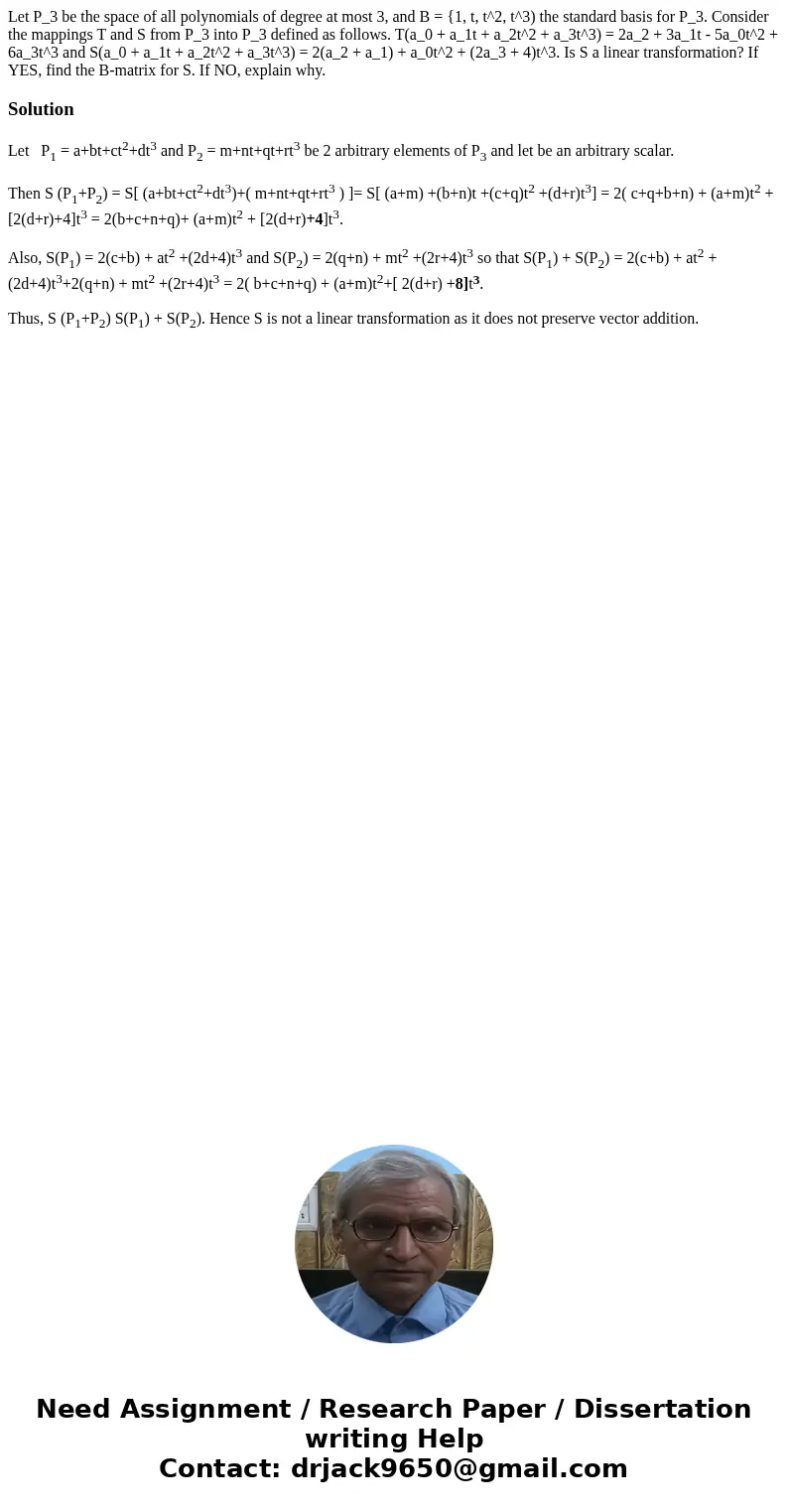Let P3 be the space of all polynomials of degree at most 3 a
Let P_3 be the space of all polynomials of degree at most 3, and B = {1, t, t^2, t^3) the standard basis for P_3. Consider the mappings T and S from P_3 into P_3 defined as follows. T(a_0 + a_1t + a_2t^2 + a_3t^3) = 2a_2 + 3a_1t - 5a_0t^2 + 6a_3t^3 and S(a_0 + a_1t + a_2t^2 + a_3t^3) = 2(a_2 + a_1) + a_0t^2 + (2a_3 + 4)t^3. Is S a linear transformation? If YES, find the B-matrix for S. If NO, explain why.
Solution
Let P1 = a+bt+ct2+dt3 and P2 = m+nt+qt+rt3 be 2 arbitrary elements of P3 and let be an arbitrary scalar.
Then S (P1+P2) = S[ (a+bt+ct2+dt3)+( m+nt+qt+rt3 ) ]= S[ (a+m) +(b+n)t +(c+q)t2 +(d+r)t3] = 2( c+q+b+n) + (a+m)t2 + [2(d+r)+4]t3 = 2(b+c+n+q)+ (a+m)t2 + [2(d+r)+4]t3.
Also, S(P1) = 2(c+b) + at2 +(2d+4)t3 and S(P2) = 2(q+n) + mt2 +(2r+4)t3 so that S(P1) + S(P2) = 2(c+b) + at2 +(2d+4)t3+2(q+n) + mt2 +(2r+4)t3 = 2( b+c+n+q) + (a+m)t2+[ 2(d+r) +8]t3.
Thus, S (P1+P2) S(P1) + S(P2). Hence S is not a linear transformation as it does not preserve vector addition.

 Homework Sourse
Homework Sourse